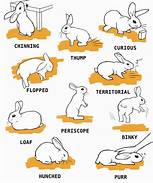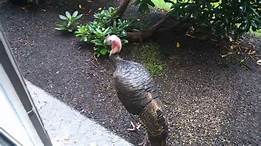What Do I Need for a Pet Bunny?
Bringing a pet bunny home is an exciting experience, but it's important to make sure you have everything you need to keep your new furry friend happy and healthy. Here's a comprehensive list of items you'll need for your pet bunny:

Cage or Hutch
1. Spacious cage or hutch: Bunnies need plenty of space to hop, play, and exercise. Choose a cage or hutch that's at least 24 inches long, 18 inches wide, and 12 inches high for a single bunny. For multiple bunnies, you'll need a larger enclosure.
2. Bedding: Provide soft and absorbent bedding for your bunny to rest and burrow in. Options include straw, hay, or shredded paper. Avoid using cedar or pine shavings, as they can cause respiratory problems.
3. Litter box: Bunnies can be trained to use a litter box, just like cats. Place the litter box in a corner of the cage and fill it with a suitable litter, such as paper-based or clay-based litter.
Food and Water
1. Bunny pellets: Provide your bunny with a high-quality bunny pellet diet as the staple food source. Look for pellets that are specifically designed for rabbits and contain the appropriate nutrients.
2. Fresh hay: Hay should be available to your bunny at all times. It provides essential fiber and helps keep their digestive system healthy. Choose grass hays such as timothy hay or orchard grass hay.
3. Fresh vegetables: Offer your bunny a variety of fresh vegetables daily. Good choices include romaine lettuce, carrots, celery, and broccoli. Introduce new vegetables gradually to avoid digestive upset.
4. Water bottle: Provide your bunny with a clean and fresh supply of water at all times. Choose a water bottle that's easy for your bunny to use and doesn't leak.
Toys and Enrichment
1. Chew toys: Bunnies love to chew, so provide them with a variety of chew toys to prevent boredom and destructive behavior. Good options include wooden blocks, carrot-shaped toys, and willow balls.
2. Tunnels and hiding spots: Bunnies enjoy exploring and hiding, so provide them with tunnels, cardboard boxes, and other hiding spots to keep them entertained.
3. Exercise opportunities: Bunnies need regular exercise to stay healthy. Allow your bunny to hop and play outside the cage for at least 30 minutes each day. If possible, provide a dedicated play area or bunny-proof a room where they can run and explore safely.
Grooming and Health
1. Brush: Brush your bunny's fur regularly to remove loose hair and prevent matting. Use a soft brush designed for rabbits.
2. Nail clippers: Trim your bunny's nails regularly to prevent them from getting too long and causing discomfort or injury. Use small animal nail clippers specifically designed for rabbits.
3. Pet carrier: A pet carrier is essential for transporting your bunny to veterinary appointments or emergencies. Choose a carrier that's large enough for your bunny to move comfortably.
Veterinary Care
1. Regular checkups: Take your bunny to the vet for regular checkups to ensure their overall health and well-being. During these checkups, the vet will examine your bunny, check their teeth, and administer any necessary vaccinations.
2. Vaccinations: Make sure your bunny receives the appropriate vaccinations to protect them from common diseases, such as myxomatosis and viral hemorrhagic disease (VHD).
3. Emergency care: Be prepared for unexpected illnesses or injuries by having a list of emergency veterinary clinics and their contact information readily available.
By providing your pet bunny with the proper care and supplies, you can ensure they live a happy, healthy, and fulfilling life.
Declaration: All article resources on this website, unless otherwise specified or labeled, are collected from online resources. If the content on this website infringes on the legitimate rights and interests of the original author, you can contact this website to delete it.




